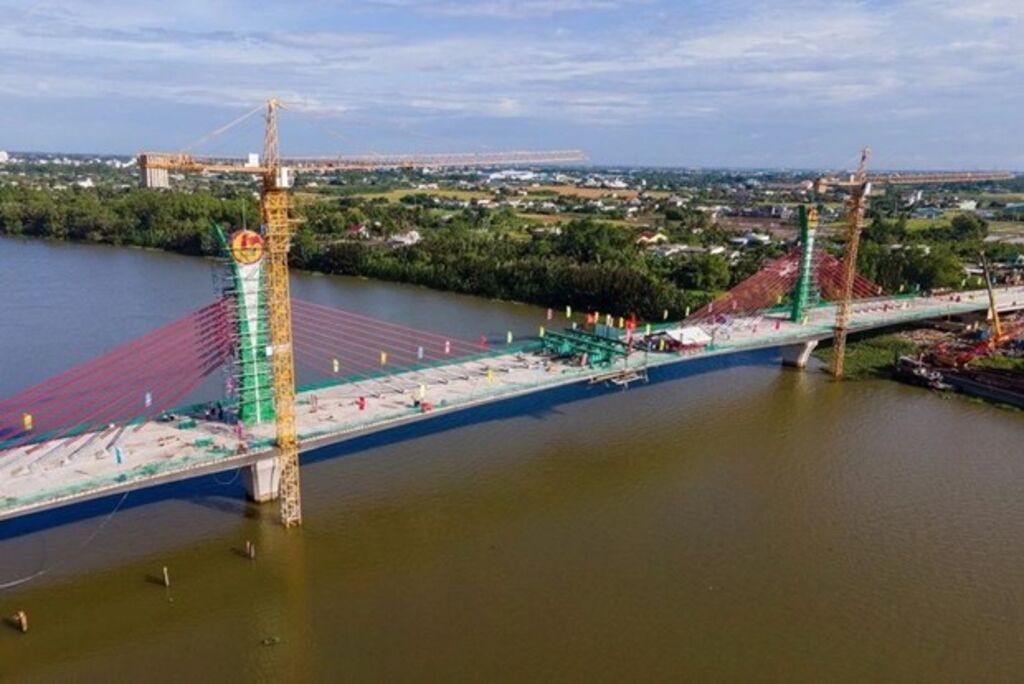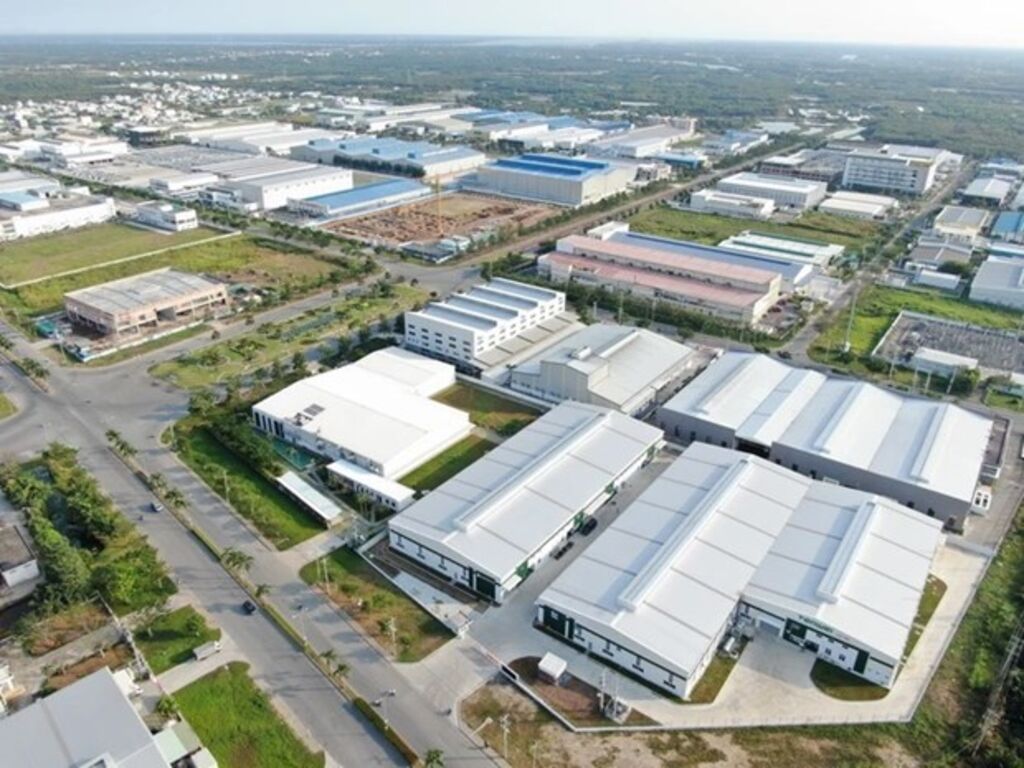 |
| A bridge crossing Vam Co Tay river in Long An province__Photo: VNA |
The Mekong Delta is to become a region of comprehensive development, modern and uniform infrastructure system, and dynamic economic growth under the Poliburo’s resolution on the region’s socioeconomic development to 2045.
The Mekong Delta comprises Can Tho City and the provinces of An Giang, Dong Thap, Long An, Tien Giang, Vinh Long, Ben Tre, Tra Vinh, Soc Trang, Hau Giang, Bac Lieu, Ca Mau and Kien Giang. It is one of the largest and most fertile deltas in Southeast Asia and the world.
The Delta is next to the Southeastern region, including Ho Chi Minh City - the southern economic hub of Vietnam, and adjacent to Cambodia to the north, the Gulf of Thailand to the southwest, and the East Sea to the southeast.
The region is close to the East - West shipping route and also traversed by many important international air routes that connect South Asia and East Asia, along with Australia and archipelagos in the Pacific Ocean.
It boasts a 700km coastline, accounting for 23 percent of the country’s total coastline, as well as about 360,000 sq.km. of the sea, continental shelf, and exclusive economic zone. It is also home to the Tho Chu and Nam Du archipelagoes and Phu Quoc Island, which are critically important to the control of shipping routes through the East Sea to the Pacific Ocean and the Indian Ocean.
With a view to carrying out the resolution, the local Party Committees and authorities have worked to complete institutions and policies as well as finalize their master plans for the 2021-2030 period with a vision to 2050, which are in line with the region’s planning, and able to optimize their potential and strengths.
In its planning, Long An set the target to become a dynamic economic hub in the south, a gateway in the urban-industrial economic corridor of the Mekong Delta region which is closely connected with Ho Chi Minh City and the Southeastern region, and an important locality that helps promote cooperation and trade with Cambodia.
The province will form economic corridors, development centers and urban areas that promote local development, said Secretary of the Party Committee and Chairman of the provincial People’s Council Nguyen Van Duoc, adding Long An aims to become a leading industrial province in the country, and an important growth pole in the region.
He said Long An has carried out an array of measures, with focus sharpened to creating breakthroughs in administrative reform to better serve the people and businesses, and improve the quality of local investment climate.
Besides, the province has paid due regard to developing high-quality human resources, attracting talents, and accelerating innovation and digital transformation in important sectors.
The province will continue to capitalize on its potential and strengths, effectively carry out the approved planning, promote economic restructuring and digital transformation as well as the competitive edge of the economy. Additionally, it will work to attract investments, develop modern trade infrastructure, while promoting the efficiency of port and logistics services, and branching out tourism models of local strengths such as cultural tourism, eco-tourism and experience tourism.
Soc Trang is the second locality in the delta to announce its planning for the 2023-2030 period with a vision to 2050, seeing it as a basis for the province to carry out the Politburo’s resolution.
 |
| A corner of Long Hau industrial park in Long An province__Photo: VNA |
Accordingly, it looks to develop modern and sustainable industry, trade and agriculture, form a green and smart urban area system which is able to respond to climate change.
Chairman of the provincial People’s Committee Tran Van Lau affirmed that the province will take the advantage of its strategic position to turn itself into a gateway to the East Sea of the Mekong Delta region, and an agricultural, industrial, service and logistics hub of the region.
To realize its development targets, Soc Trang will focus on developing the processing industry, agriculture-seafood sector and tourism-service sector. It will at the same time work on other potential fields such as energy, sea port and logistics as well as improve its administrative reform and competitive capacity.
Per the planning, the province will have eight industrial parks and 18 industrial clusters by 2030, and make big investment in key projects, including Tran De deep-water seaport and many transport projects that connect Soc Trang and other localities.
As the province will have high demand for skilled workers by 2025, it has enhanced communications work on vocational training and job generation, upgraded facility at vocational training schools, and joined hands with enterprises and high-quality education establishments to provide training to improve capacity and skills for the local workforce.- (VNA/VLLF)









